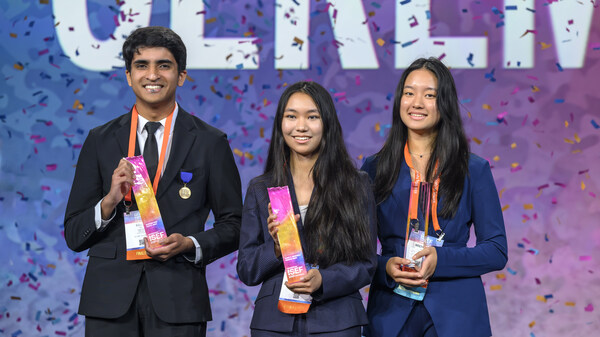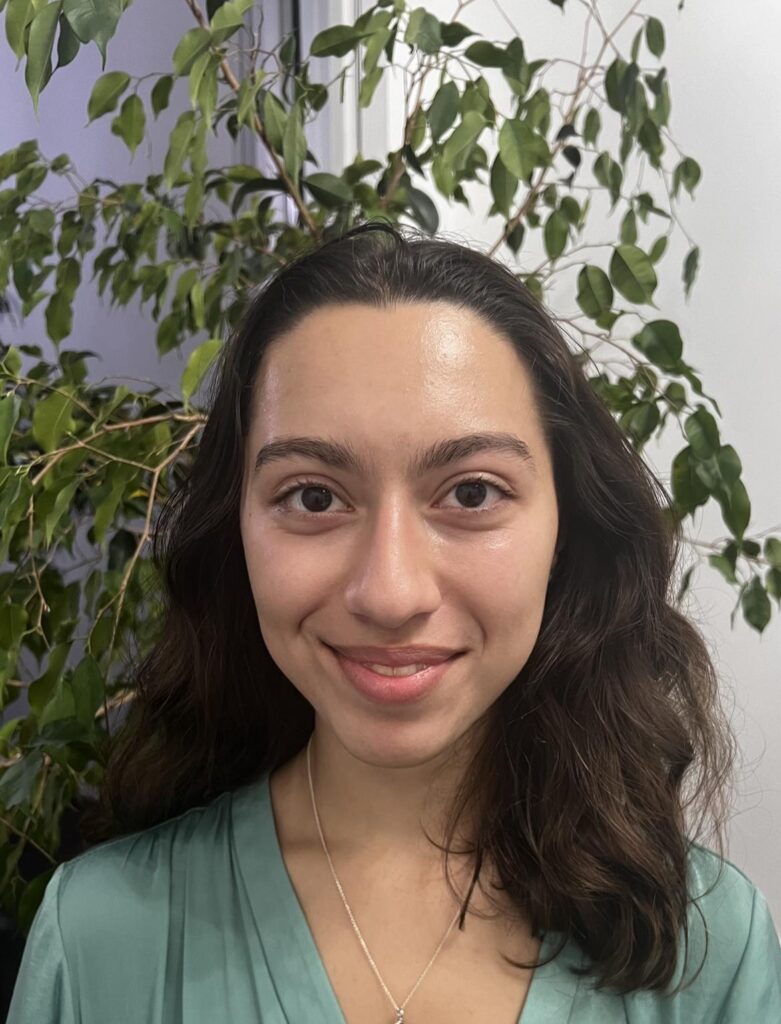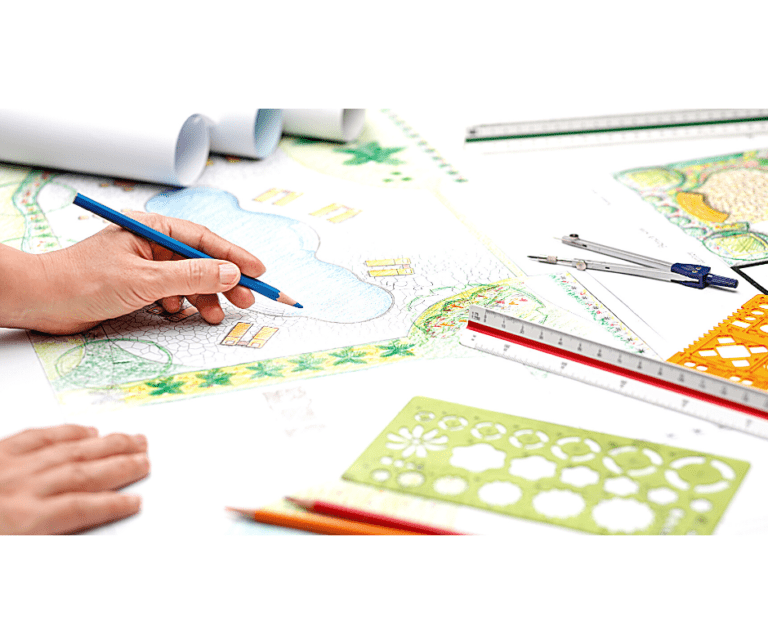
Regeneron Pharmaceuticals, Inc. and Society for Science announced that Grace Sun, 16, of Lexington, Kentucky, won the $75,000 top award, the George D. Yancopoulos Innovator Award, named in honor of the pioneering drug researcher and Regeneron Co-Founder, Board Co-Chair, President and Chief Scientific Officer, in the 2024 Regeneron International Science and Engineering Fair (Regeneron ISEF), the world’s largest pre-college science and engineering competition. Other top prizes went to projects in second-order cone programming, microplastics filtration and multi-sensory therapy for dementia.
The top winners were honored during two award ceremonies: the Special Awards on May 16 and the Grand Awards Ceremony on the morning of May 17. In total, over $9 million was awarded to the finalists based on their projects’ creativity, innovation and depth of scientific inquiry. The competition featured nearly 2,000 young scientists representing 49 U.S. states and nearly 70 countries, regions and territories across the world.
Grace Sun, 16, of Lexington, Kentucky, won first place and received the $75,000 George D. Yancopoulos Innovator Award for her research on building a better organic electrochemical transistor that she hopes will be used to develop new electronic devices that could help detect and treat serious illnesses like diabetes, epilepsy and organ failure. To overcome the problems that have previously prevented such devices from working effectively inside the body, Grace developed a new way of chemically treating their organic components, which greatly improved their laboratory performance.
Michelle Wei, 17, of San Jose, California, received one of two Regeneron Young Scientist Awards of $50,000 for her research to improve the speed and efficiency of a type of software that is useful in many fields such as machine learning, transportation and financial systems. Michelle’s new approach involved determining a quick approximate solution to the second-order cone programming problem, then splitting the initial cone into smaller cones, which enabled her new algorithm to greatly outperform previous approaches.
Krish Pai, 17, of Del Mar, California, received the second Regeneron Young Scientist Award of $50,000 for his machine-learning research to identify microbial genetic sequences that can be modified to biodegrade plastic. His new software, called Microby, scans databases of microorganisms and determines which ones can be changed genetically to biodegrade plastics. In tests, he identified two microorganisms that can be genetically modified to degrade plastic at a cost he believes would be ten times less than traditional recycling.
“Congratulations to the Regeneron International Science and Engineering Fair 2024 winners,” said Maya Ajmera, President and CEO, Society for Science and Executive Publisher, Science News. “I’m truly inspired by the ingenuity and determination shown by these remarkable students. Coming from around the world with diverse backgrounds and academic disciplines, these students have shown that it is possible to come together in unity to tackle some of the toughest challenges facing our world today, and I could not be prouder.”
Regeneron ISEF provides a global stage for the world’s best and brightest young scientists and engineers. Through this competition, Regeneron and the Society are fostering the next generation of STEM leaders who are pioneering solutions to improve our world. Since 2020, Regeneron has provided STEM experiences to approximately 2.4 million students, on track to meet its goal of 2.5 million by 2025.
“The talent, intelligence and potential of this year’s Regeneron ISEF finalists is truly inspiring, and I congratulate each on their remarkable achievements,” said George D. Yancopoulos, M.D., Ph.D., co-Founder, Board co-Chair, President and Chief Scientific Officer of Regeneron. “Science competitions like ISEF were pivotal in shaping my own career and fueling my passion to fight back against disease. I look forward to seeing these students continue to push the boundaries of science and technology to create positive and sustainable change for all humanity.”
Other top honors from the competition include:
Justin Huang and Victoria Ou, both 17, of Woodlands, Texas, received the Gordon E. Moore Award for Positive Outcomes for Future Generations of $50,000 for their new prototype filtration system that uses ultrasonic waves to remove microscopic plastic particles from water. In lab tests, the acoustic force from the high-frequency sound waves removed between 84% and 94% of the suspended microplastic particles in a single pass. The students are now working to scale up and fine-tune their experimental system.
Ingrid Wai Hin Chan, 17, of Hong Kong, China received the Craig R. Barrett Award for Innovation of $10,000 for her research on using a multi-sensory therapy for dementia patients. Her mixed therapy app would allow patients to practice physical and cognitive skills through a personalized, immersive environment using virtual reality headsets. Ingrid conducted an eight-week study with six people living with dementia and found that the cognitive function of patients who used her prototype improved in several areas. She believes her app could serve as a viable option for dementia patients with limited access to in-person professional therapy.
Tanishka Balaji Aglave, 15, of Valrico, Florida, received the H. Robert Horvitz Prize for Fundamental Research of $10,000 for her investigation into a natural alternative treatment against citrus greening, a disease that threatens citrus farming in many parts of the world and is currently only treated with antibiotics. Tanishka injected the trunks of infected trees with an extract from the curry leaf tree, and found through tests that this potential method could effectively and sustainably manage citrus greening disease.
Maddux Alexander Springer, 18, of Honolulu, Hawaii, received the Peggy Scripps Award for Science Communication of $10,000 for his research into fibropapillomatosis (FP), a disease that is the primary cause of death in green sea turtles. Some turtles he studied in Kaneohe Bay, Hawaii, were stricken with a disease that causes internal and external tumors that inhibit their everyday lives. After analyzing the turtles’ diet of green algae, Maddux concluded that this disease, wastewater, invasive algae and the amino acid arginine all pose a grave risk to these endangered sea creatures.
Ria Kamat, 17, of Hackensack, New Jersey; Anna Oliva, 17, of Houston, TX; and Shuhan Luo, 18, of Worcester, MA, received the Dudley R. Herschbach SIYSS Award, which provides finalists an all-expense paid trip to attend the Stockholm International Youth Science Seminar during Nobel Week in Stockholm, Sweden.

Jack Shannon, 18, of Clane, Kildare, Ireland, and Nikhil Vemuri, 17, of Cary, North Carolina, received the EU Contest for Young Scientists Award. Their projects will represent Regeneron ISEF at the EU Contest for Young Scientists to be held this September in Katowice, Poland.
For more information about the top winners and access to visual assets visit: https://www.societyforscience.org/isef-2024-media-kit.
The full list of Special Award ISEF 2024 Finalists can be found at https://www.societyforscience.org/press-release/regeneron-isef-2024-special-awards-winners.
In addition to the Top Award winners, more than 450 finalists received awards and prizes for their innovative research, including “First Award” winners, who each received a $5,000 prize.
The following lists the First Award winners for each of the 22 categories, from which the Top Awards were chosen:
Animal Sciences, sponsored by Society for Science
Maddux Alexander Springer, Honolulu, Hawaii
Behavioral and Social Sciences, sponsored by Society for Science
Andrew Y. Liang, San Jose, California
Biochemistry, sponsored by Regeneron
Amy Hong Xiao, Garden City, New York
Biomedical and Health Sciences, sponsored by Regeneron
Ria Kamat, Hackensack, New Jersey; Kevin Xuan Lei, Shanghai, China
Biomedical Engineering, sponsored by Alfred E. Mann Charities
Ayush Garg, Dublin, California; Divij Motwani, Palo Alto, California; Akash Ashish Pai, Portland, Oregon
Cellular and Molecular Biology, sponsored by Regeneron
Lara and Maya Sarah Hammoud, Beverly Hills, Michigan
Chemistry, sponsored by Society for Science
Akilan Sankaran, Albuquerque, New Mexico; Arjun Suresh Malpani and Siddharth Daniel D’costa, Portland, Oregon
Computational Biology and Bioinformatics, sponsored by Regeneron
Kun-Hyung Roh, Bronx, New York
Earth and Environmental Sciences, sponsored by Google.org
Nikhil Vemuri, Durham, North Carolina; Justin Yizhou Huang and Victoria Ou, The Woodlands, Texas
Embedded Systems, sponsored by HP
Chloe Rae and Sophie Rose Filion, Welland, Ontario, Canada
Energy: Sustainable Materials and Design, sponsored by Siemens Energy
Alia Wahban, Hamilton, Ontario, Canada
Engineering Technology: Statics and Dynamics, sponsored by Howmet Aerospace Foundation
Chiyo Nakatsuji, Bunkyoku, Tokyo, Japan; Kevin Shen, Olympia, Washington
Environmental Engineering, sponsored by Jacobs
Krish Pai, San Diego, California; Jack Shannon, Clane, Kildare, Ireland
Materials Science, sponsored by Howmet Aerospace Foundation
Grace Sun, Lexington, Kentucky
Mathematics, sponsored by Akamai Foundation
Anna Oliva, Houston, Texas
Microbiology, sponsored by Schattner Foundation
Matthew Chang, Irvine, California
Physics and Astronomy, sponsored by Richard F. Caris Charitable Trust II
Harini Thiagarajan and Vishal Ranganath Yalla, Bothell, Washington; Shuhan Luo, Worcester, Massachusetts
Plant Sciences, sponsored by Society for Science
Pauline Estrada, Fresno, California; Tanishka Balaji Aglave, Dover, Florida
Robotics and Intelligent Machines, sponsored by Regeneron
Michal Lajciak, Dubnica nad Vahom, Trenciansky kraj, Slovakia; Anthony Efthimiadis, Oakville, Ontario, Canada
Systems Software, sponsored by Microsoft
Michelle Wei, San Jose, California
Technology Enhances the Arts, sponsored by Society for Science
Anant Khandelwal, Sritan Motati and Siddhant Sood, Alexandria, Virginia
Translational Medical Science, sponsored by Regeneron
Zheng-Chi Lee, West Lafayette, Indiana; Ingrid Wai Hin Chan, Hong Kong, China
The full list of all award-winning ISEF 2024 finalists is available here: https://www.societyforscience.org/press-release/regeneron-isef-2024-full-awards.
View all the finalists’ research here: https://projectboard.world/isef.
About the Regeneron International Science and Engineering Fair
The Regeneron International Science and Engineering Fair (Regeneron ISEF), a program of Society for Science for over 70 years, is the world’s largest global science competition for high school students. Through a global network of local, regional and national science fairs, millions of students are encouraged to explore their passion for scientific inquiry. Each spring, a group of these students is selected as finalists and offered the opportunity to compete for approximately U.S. $9 million in awards and scholarships.







